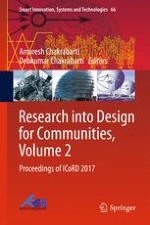2017 | OriginalPaper | Chapter
Assessment of GRIHA and LEED on the Parameters of Sustainable Design and Development of Buildings
Authors : Shiva Ji, Sharmistha Banerjee, Ravi Mokashi Punekar
Published in: Research into Design for Communities, Volume 2
Publisher: Springer Singapore
Activate our intelligent search to find suitable subject content or patents.
Select sections of text to find matching patents with Artificial Intelligence. powered by
Select sections of text to find additional relevant content using AI-assisted search. powered by
